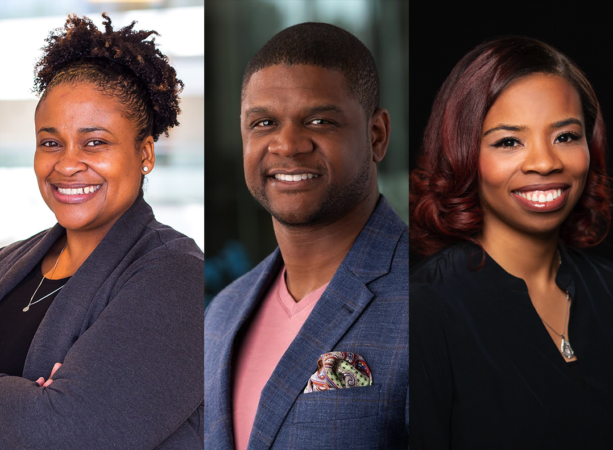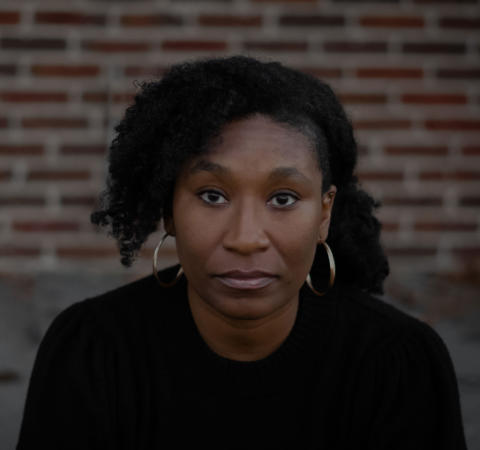Sometimes work can be a lot. Even if we love what we do, we need to take time to reflect on our responsibilities within an organization and how to move forward in ways that align with our professional and personal goals.
The Blacks in Tech (BIT) business resource group at Capital One makes space for that re-up through its annual BIT Summit. Thirty employee volunteers planned and hosted the 2021 virtual event held in October 2021. The four-day summit had a record-breaking attendance of about 1,300 employees who logged in to experience programming around the theme “Tech Out LOUD: Leadership, Opportunity, Unity and Diversity.”
Lead event organizer Devon Rollins says the summit is a convening to celebrate, acknowledge, train and reward the work, resilience and incredible contributions of Black technologists at Capital One.
“We intend for people to walk away with their ‘Aha!’ moment, where either they learn about new capabilities or platforms or tools available for them to do their jobs, and I think most importantly, an opportunity for them to connect with folks who are very much a part of their tribe.”
Capital One employees and summit organizers talked to AfroTech about their roles within the company, summit highlights and their desire to see Black technologists succeed.
What is your role at Capital One?
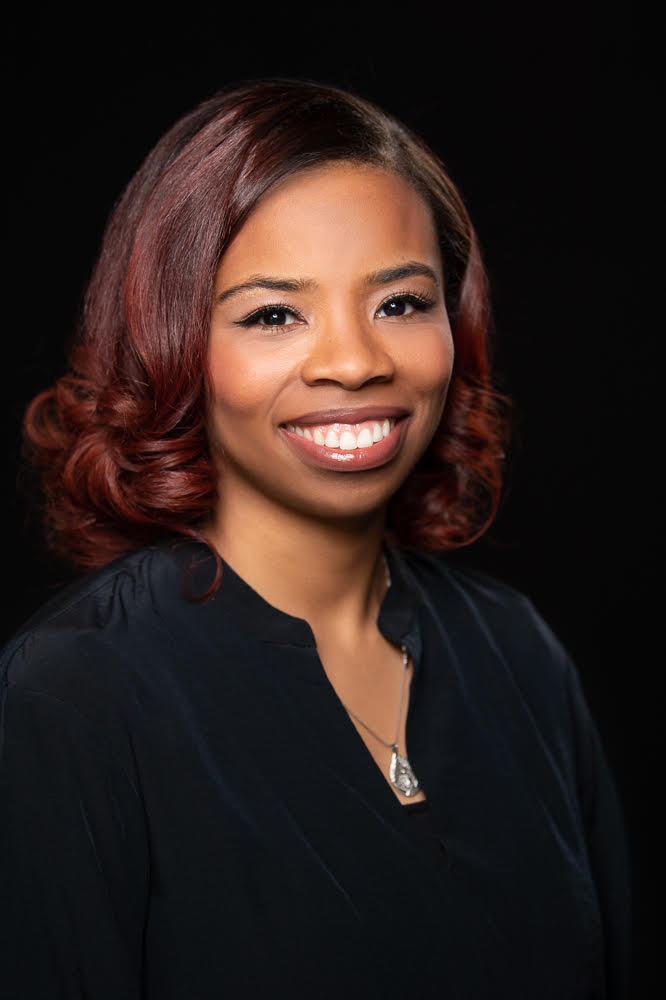
Lavonda Perkins
I am a senior manager within Tech College, a learning platform created in house that offers thousands of free courses for developing new tech skills. It’s essentially our training organization that is geared toward our tech associates. Within Tech College, I am the lead of our tech skills programs.
We have different disciplines within Tech College. Cloud, cyber, machine learning, data, software engineering, mobile — all of those disciplines roll up to me, and I’m making sure that all of our tech associates have what they need in regards to internal and external training.
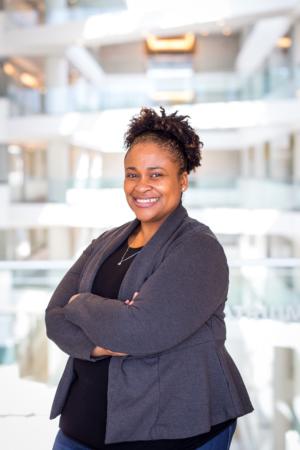
Tammy S. Allen
I am a cyber anti-money laundering reporting manager within the cyber fraud intelligence program. My team makes sure that cyber events or incidents that meet a threshold for filing cyber-related suspicious activity reporting are sent over to our money laundering team.
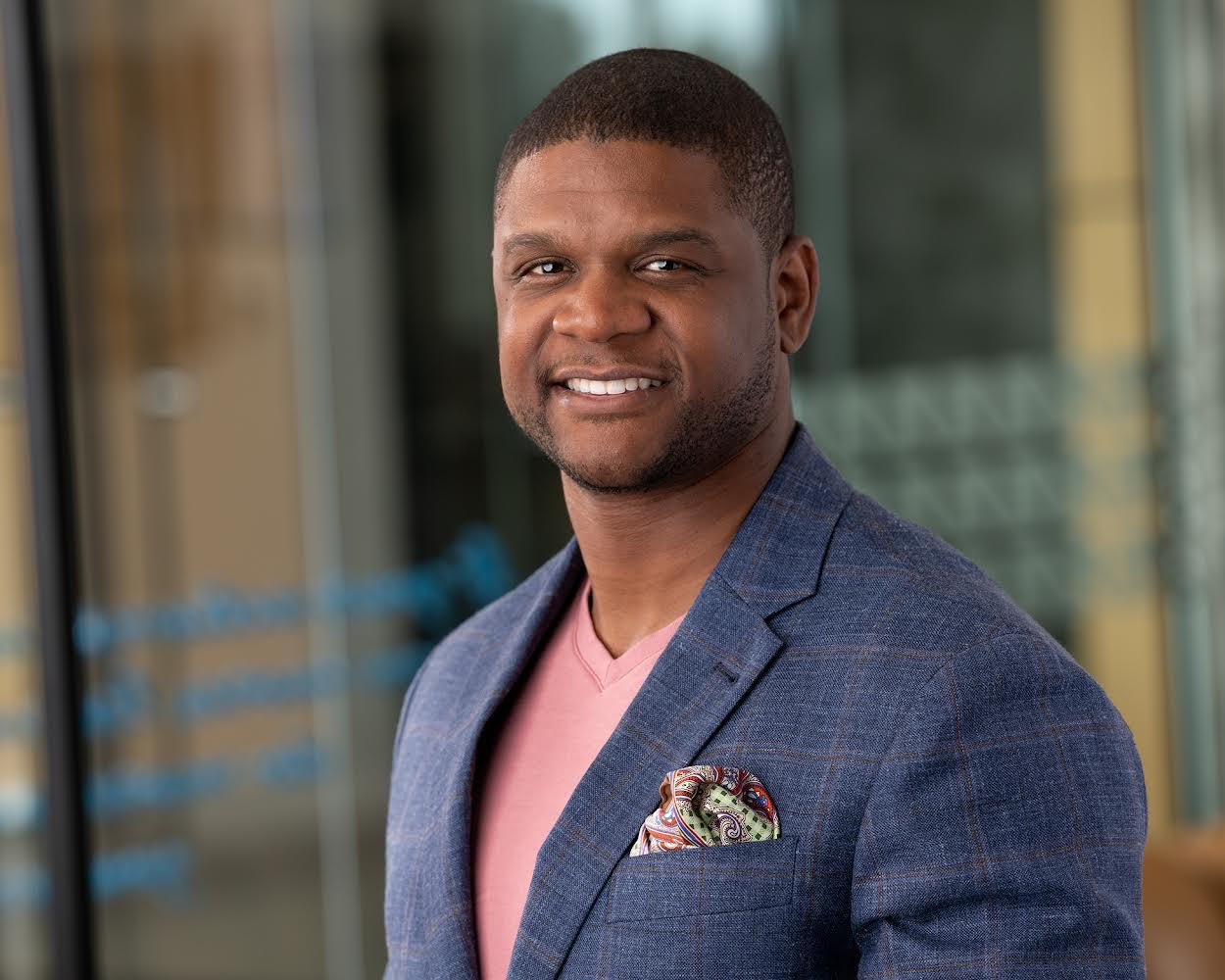
Devon Rollins
I’m a senior director in our cyber engineering and machine learning organization. I’m responsible for managing, deploying and developing all the platforms that assist in our security monitoring capabilities. I lead developers, machine learning engineers and data scientists who provide the tool sets that then power our frontline defenders to protect the company.
What was it like planning for the summit?
Lavonda: I think, overall, the event was a great success. In many ways, it’s like a junior AfroTech. I do think that planning can take a while, and there was a small team of us putting in the extra hours to make the event a success, but it’s worth it. And we have great leadership behind us as well.
Tammy: It was a Herculean effort. I was so glad that I had an opportunity to be a part of this because it was not easy, but everybody who was involved was passionate about the mission behind this and the purpose. It was really inspiring.
Devon: We had 21 work streams in total. From establishing the theme to preparing speakers and working with Capital One executives, our hands were in all components of event planning, not to mention incredible swag boxes for all associates that illuminated Black-owned businesses. We were intentional about setting the main stage (literally and figuratively) so that you felt like you were in a room with your colleagues. We created templates, designs, logos, a curated website, and we built an incredible event platform. And we spend a lot of time crafting the attendee and speaker experience.
We recorded all of the videos, made those available to our associates afterwards, and they will live in our Capital One ecosystem. Enriching content is vital for successful summits, but even more important are the safe spaces for meaningful connection, vulnerable exchanges, and gathering spots at virtual tables.
In what ways were you personally impacted by the summit sessions you were able to attend?
Lavonda: The fireside chat with Morgan DeBaun [Blavity Inc. CEO] really resonated with me. She’s one of the Black women that I look up to in the tech industry. I remember seeing her for the first time in 2018 at the AfroTech conference in San Francisco, and I was like, “Wow, I really want to be like her when I grow up even though we’re the same age.” How much Blavity has grown since 2018 is just astonishing to me, and how she’s not going at this by herself — she’s taking a lot of corporations along with her to make sure that Black folks are seeing other people that look like them at these companies.
Tammy: One of the sessions that really stood out for me was Dr. Ruha Benjamin. She came with a word. Her particular presentation was “Beyond Buzzwords: Reimagining the Default Settings of Technology and Society” — not just the origins of discriminatory design that we know about, but some we didn’t. She highlighted some things, and it was interesting seeing people in the event Slack channel agree. They were like, “Amen! She preaching.”
Devon: I would say hearing from Ime Archibong. He’s the head of new product experimentation at Facebook, and he is a board member of Capital One. One of the things he said is that the real goal is not just about opening the door, but busting the door wide open and throwing the keys, and it goes back to the community. I thought that was a clarion call that reminds us, “Here’s what’s important.”
What are things Capital One is doing outside of this annual event to help Black technologists at the company?
Lavonda: I’m also part of the BIT community outreach committee. Within that committee, we are doing at least two to three volunteer events every year to make sure we’re reaching out to the folks that look like us, to make sure we’re not only helping those at Capital One but also those outside to ensure that folks know there are Black technologists out there.
Devon: We do a number of seminars and speaker series where we invite Black technologists to come speak to us about the new capabilities that are available. We talk through the performance management process and how to successfully navigate the culture of Capital One.
There are a number of nonprofit partners that we support, and our Blacks in Tech community rallies together to ensure we’re creating and establishing that pipeline, getting more students interested and involved in technology and hearing more about what the different career paths are in the space.
We also help with onboarding. There’s a number of new hires who come into a company of this size, and they’re trying to find their way. The BIT community is one that quickly wraps its arms around them and helps them get oriented around what resources are available to support their transition.
This editorial is brought to you in partnership with Capital One.
